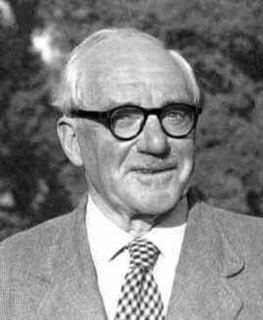A Quote by John Maynard Keynes
Too large a proportion of recent "mathematical" economics are mere concoctions, as imprecise as the initial assumptions they rest on, which allow the author to lose sight of the complexities and interdependencies of the real world in a maze of pretentious and unhelpful symbols.
Related Quotes
The conclusion to which I am ever more clearly coming is that the only hope of attaining a true system of economics is to fling aside,once and forever, the mazy and preposterous assumptions of the Ricardian school. Our English economists have been living in a fool's paradise. The truth is with the French school, and the sooner we recognize the fact, the better it will be for all the world, except perhaps the few writers who are far too committed to the old erroneous doctrines to allow for renunciation.
When you get up into the crown of a redwood tree, you lose sight of the ground entirely. You also lose sight of the sky. And you're in a lost world. You're in an undiscovered, unexplored ecosystem, somewhere between Heaven and Earth, filled with forms of life, not all of which have been given names by scientists yet.
Conventions of generality and mathematical elegance may be just as much barriers to the attainment and diffusion of knowledge as may contentment with particularity and literary vagueness... It may well be that the slovenly and literary borderland between economics and sociology will be the most fruitful building ground during the years to come and that mathematical economics will remain too flawless in its perfection to be very fruitful.
One might think this means that imaginary numbers are just a mathematical game having nothing to do with the real world. From the viewpoint of positivist philosophy, however, one cannot determine what is real. All one can do is find which mathematical models describe the universe we live in. It turns out that a mathematical model involving imaginary time predicts not only effects we have already observed but also effects we have not been able to measure yet nevertheless believe in for other reasons. So what is real and what is imaginary? Is the distinction just in our minds?
In presenting a mathematical argument the great thing is to give the educated reader the chance to catch on at once to the momentary point and take details for granted: two trivialities omitted can add up to an impasse). The unpractised writer, even after the dawn of a conscience, gives him no such chance; before he can spot the point he has to tease his way through a maze of symbols of which not the tiniest suffix can be skipped.
Philosophy [nature] is written in that great book which ever is before our eyes -- I mean the universe -- but we cannot understand it if we do not first learn the language and grasp the symbols in which it is written. The book is written in mathematical language, and the symbols are triangles, circles and other geometrical figures, without whose help it is impossible to comprehend a single word of it; without which one wanders in vain through a dark labyrinth.



































